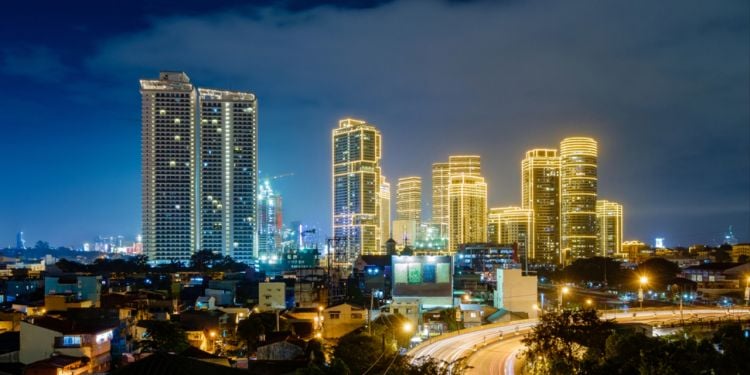The job market in Manila

The Philippines is among Asia's premier labor markets. Many aspiring expats are choosing Manila as their ideal foreign destination to live and work in for several great reasons. The economy is growing and is expected to keep on thriving in the coming years.
Overview of the Philippine workforce
According to the Philippines Statistics Authority, the employment rate in the Philippines in March 2023 was estimated at 95.3 percent. This was higher than the reported employment rate in the same month last year at 94.2 percent and in the previous month at 95.2 percent. In terms of magnitude, the number of employed persons in March 2023 was estimated at 48.58 million, posting an increase of 1.61 million from the 46.98 million employed persons in March 2022.
The unemployment rate in March 2023 dropped to 4.7 percent from 5.8 percent in March 2022 and 4.8 percent in February 2023. This translates to 2.42 million unemployed Filipinos out of 51.00 million Filipinos who were in the labor force in March 2023.
Underemployment rate in March 2023 went down to 11.2 percent, from 15.8 percent in the same month last year and 12.9 percent in February 2023. This was the lowest unemployment rate reported since April 2005.
The average weekly hours worked by an employed person in March 2023 was estimated at 40.0 hours per week. This was slightly lower than the average weekly hours worked in March 2022 at 40.6 hours but higher than the estimate in February 2023 of 39.5 hours.
By broad industry group, the services sector remained the top employment hub, with a share of 59.0 percent of the total employed population in March 2023. The agriculture and industry sectors accounted for 23.5 percent and 17.5 percent of the total employed persons, respectively.
The labor market in Manila
Regarding Manila, foreign investors have been interested in the area, especially with the pool of well-equipped English-speaking locals, which can help their businesses thrive in Asia. The average English proficiency of adults in the Philippines is among the highest in Asia. English is the primary medium of instruction in academic institutions, government offices and corporate settings. This makes the Philippines the world's third-largest English-speaking country. With its highly skilled and productive workforce, the Philippines has become one of the most attractive destinations for businesses expanding in Southeast Asia.
The Philippines is a newly industrialized nation, and with this, the economy has transitioned from being focused on agriculture to being based more on services and manufacturing. But what are the fields that most expats would be most likely to consider?
Most expatriates coming to Manila have already pre-arranged a job from their country of origin. This situation most likely happens to expats connected with multinational companies. Like other countries, this is the most straightforward approach, as your company would be the one to sponsor your working permit. If you are in a position to be job hunting within the Philippines, this might prove challenging as companies might give precedence to locals over foreigners and would only keep this option if they can't find a local to fill the role.
Priority is deemed to be given to any able Filipinos over foreigners unless the expat has a desirable skill fit for the job requirements. But expats who don't have employment before entering the country are free to work as long as the necessary working permit has been secured. You will be required to secure an Alien Employment Permit (AEP) from the Department of Labour and Employment (DOLE) before you can legally work in the country.
Promising opportunities for expats in Manila
There are quite a few options for expats wanting to work in Manila. Popular job markets for expats are as English language teachers and at call centers or Business Process Outsourcing Centers (BPOs). You can obtain work as a call center agent and make 25,000/ USD 452 to 45,000 pesos/ USD 813 per month plus commission, but competition will still be stiff against Filipinos who have the same qualifications as you do. There is an option for BPOs to hire call center agents speaking foreign languages other than English, like Japanese, French, German, etc. This pays double to triple the standard rate, which is much closer to a Western salary range.
You can also consider working for foreign companies or international NGOs focusing on research, foreign service and development work. As a rule, salaries increase in the Philippines in line with economic growth. The key to finding legitimate work in the Philippines is research, networking, and lots of perseverance.
Other prominent sectors for expats in Manila are NGOs/ Non-Government Organisations, privately owned businesses and the education sector.
Work conditions in Manila
The next step after landing a job in Manila is understanding and equipping yourself with the necessary knowledge about the local labor laws to safeguard your rights as a foreign worker. In the Philippines, in general, employees work for approximately eight hours a day, totaling 40 hours a week. Employees usually have two rest days, which are commonly Saturdays to Sundays. An additional 30% based on the employee's hourly rate is added for any excess working hours beyond eight hours.
Five paid leaves are also included per year once you have rendered a full year of service in the company. The Philippines has a total of eighteen national holidays each year, and any employee who works on a holiday is entitled to receive double the amount of their regular hourly rate.









